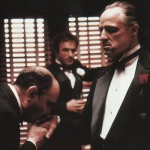Midnight Cowboy Review
The first X-rated film to ever win Best Picture, Midnight Cowboy, is unique and shocking. It features great acting and is exceptionally directed. It’s possibly the definitive fish-out-of-water film, as well as one of the most quintessentially “sixties” movies ever. But it’s a hard movie to love. It does a lot of things well, but the story is dull. While it certainly pushes the envelope further than most films of its age, much of this is superficial. It’s not a very deep film, and that’s what ultimately brings it down a peg for me from a great film to solid one.
Joe Buck (Jon Voight) is a drifter from Texas who makes his way to New York City. He intends to become the city’s most desired kept man, sleeping with lonely rich woman and living on their excesses. But it’s not as easy as it sounds. Then, he meets Ratso Rizzo (Dustin Hoffman) who’s aptly named with his dark, beady eyes and buck teeth. The two form an unlikely friendship (especially after Ratso first rips off Joe), and Ratso agrees to be Joe’s manager. They never have much, but they have each other, which is enough to survive … at least for a while.
The film is gets into more than that including Ratso’s dreams of Miami, Joe’s possible homosexuality, and flashbacks of Joe’s run-in with Crazy Annie (Jennifer Salt) back in Texas. All of this is beautifully and uniquely filmed by director John Schlesinger, with some bizarre black-and-white dream sequences as well as a lot of quick cuts and close-ups. But I felt like a lot of the smaller subplots were glossed over a little too much. Maybe it’s the fault of the way Schlesinger chose to film it. But I don’t think he should have to choose between one and the other.
The acting, though, is wonderful. Both Voight and Hoffman collected Oscar nominations for their work. If pressed, I’d say I was more enamored with Hoffman’s performance, but Voight’s character. Only two years after his great performance in The Graduate, the former goes in a completely different direction as Ratso and proves he’s capable of going all out for a performance. Voight, on the other hand, is also quite good. Watching the way Joe is changed by city life is fascinating, and Voight never oversells his hand.
After a decade of rewarding musicals and more traditional fare, the Academy really went out on a limb giving Midnight Cowboy its Best Picture award. Only a few times since then (The Deer Hunter and No Country for Old Men come to mind) has the Academy gone in such a surprising direction. The film also Best Director and Best Screenplay.
Midnight Cowboy is quite highly regarded by most critics. It’s one of those times that many agree the Academy really got it right. While I agree wholeheartedly that it gave us some phenomenal performances and a few iconic moments (the best and most famous of which would be Ratso’s “I’m walkin’ here!†as a car nearly hits him), I didn’t see much beneath the surface. It’s an old traditional story told well, but with such a great pedigree, Midnight Cowboy arguably needs to be more than that.
















